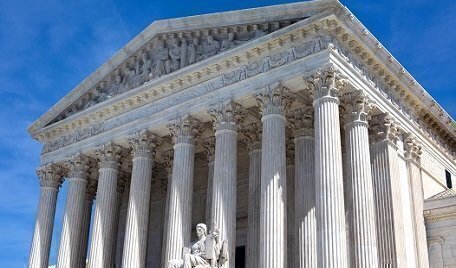The United States Supreme Court will be taking on a second major privacy case this term, but it won’t take a challenge that denied the placement of a Ten Commandments monument at a New Mexico city hall.
 The digital privacy case is called United States v. Microsoft and it involves the right of Microsoft to exclude emails hosted on overseas servers from government subpoenas. Back in 2013, federal investigators successfully got warrants from a court to obtain emails located on a server in Ireland as part of a drug investigation.
The digital privacy case is called United States v. Microsoft and it involves the right of Microsoft to exclude emails hosted on overseas servers from government subpoenas. Back in 2013, federal investigators successfully got warrants from a court to obtain emails located on a server in Ireland as part of a drug investigation.
Two lower courts ruled differently on the warrants and a full federal appeals court split evenly on the issue. Microsoft believes the warrants violated the terms of the Stored Communications Act of 1986 and only Congress can provide those warrant powers by amending the act. The federal government believes the domestic recipient of a subpoena needs to provide the requested material, regardless of its physical location.
The Court is already scheduled to hear December arguments in a significant digital privacy case. In Carpenter v. United States, the Justices will consider if the warrantless seizure and search of historical cell-phone records, which show the location and movements of a cell-phone user over a period of more than four months, is permitted by the Fourth Amendment.
Among the other cases accepted on Monday was Ohio v. American Express, which is about the ability of American Express to dissuade vendors from telling customers about other card services that have lower merchant fees. Ohio contents this “anti-steering” practices violated anti-trust laws.
The Court also rejected numerous cases in its Monday orders. The Justices didn’t accept a challenge from Bloomfield, New Mexico about a privately funded Ten Commandments monument that was placed on and them removed from city hall. Another failed lawsuit sought to remove Google’s exclusive trademark on the word “Google.”
And in Nashiri v Trump, the Court denied an appeal from a Guantanamo prisoner accused of masterminding the USS Cole attack. The detainee, Abd Al-Rahim Al-Nashiri, is facing charges that could lead to the death penalty if he is convicted. in their appeal to the Supreme Court, al-Nashiri’s lawyers were questioned whether the Guantanamo tribunals had any authority to try individuals for alleged crimes committed before the U.S. began a “war on terrorism” – in 2001 – and before the commissions were put into operation by Congress – in 2006.







